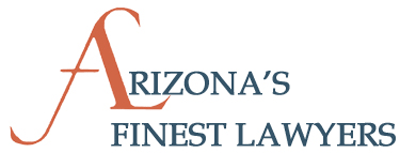Due to the current economic climate, commercial and residential foreclosures have increased exponentially, adding a layer of financial uncertainty and fluidity that has not previously existed. Hundreds of millions of dollars of foreclosed properties are flowing into bank coffers and out to investors. This economic reality has created opportunity for entrepreneurs to scoop up properties at pennies on the dollar. These distressed property sales often require new buyers to invest additional money in renovations and/or tenant improvements in order to lease the properties. For investors the entrepreneurial concept is simple: purchase cheap real estate, fix it up, and turn it over to professionals to manage and maintain while you as the owner recoup your investment and then make a killing in profits. One might think this is a profitable and low risk venture....BUT
Commercial and Residential Landowners Beware!! This is stating the obvious but residential properties are rented to tenants who have kids, pets, and friends and commercial buildings are leased to financially viable tenants who provide services to clients and customers. Simply put, people are living, working, and constantly coming and going on your property. As long as you have anyone entering your property at anytime, you are at risk. Accidents will happen. Did you know that although you may have hired qualified professionals to take care of your property, such as general contractors, property managers, and maintenance companies, you can still be held responsible for injuries that occur on the property? Many would assume when one hires contractors to take care of everything on the property, that the contractors would be liable if their negligence caused harm to others. However, property owners still have obligations to certain individuals if they are injured on the property.
"Non-delegable duties" are duties for which an owner must retain responsibility, despite proper delegation to another. A landowner may contract out the performance of his duties to an independent contractor, but he cannot contract out his ultimate legal responsibility for the proper performance of that duty. In other words; although the performance can be delegated to another party, the liability for that performance cannot.
A landowner owes a non-delegable duty to a certain protected class of persons-invitees-to keep the premises reasonably safe. An invitee may be an individual publicly invited on the property or it may be a business visitor. A business visitor, such as an employee of a contractor, is an individual who is invited to enter or remain on the property for a purpose directly or indirectly connected with business dealings of the property.
What does this mean from a legal standpoint? If an accident happens on one's property and a court or jury finds that the owner failed to ensure that his property was in a reasonably safe condition, he will be liable to those who were injured because of the unsafe condition. Similarly, if a landowner hires a contractor who in turn negligently hires a sub-contractor, the owner will be liable to anyone injured as a result of his hiring the negligent contractor.
Avoid the Risk. Despite these non-delegable duties, there are ways a landowner can avoid the risk of potential liability arising out of property ownership. One way for a landowner to avoid personal liability is to set up a corporation or limited liability company ("LLC") to own the property. Because a corporation or LLC is an entity legally distinct from its owners, the owners typically will not be personally liable for the business's obligations. The owners risk is limited to the investment they make in the business to purchase their ownership interests. Establishing the right corporate structure as a means to avoid personal liability is simple to do; the creation of corporations and LLCs generally only require certain documents to be filed within the state. Although running a corporation may require more formality than is required for other types of business entities, it may be as simple as holding an annual board meeting and complying with simple regulatory guidelines.
Shift the Risk: Insurance and Contracts. A property owner, as an individual or as a company, can shift the risk of loss to an insurance carrier by procuring the proper coverage. A property owner can also shift the risk to those hired to renovate, manage, and maintain the property by including three specific requirements in the contract: (1) procurement of a general liability insurance policy naming the owner as an additional insured; (2) indemnification; and (3) legal defense obligation.
General Liability Insurance. Property owners typically require independent contractors to carry commercial general liability insurance. General liability coverage is intended to cover an insured for anything that may happen by one's unintended, or accidental, actions. These policies are designed to protect the landowner from risks associated with ownership. Despite the sophistication of many commercial and residential investors, there is a naïveté when it comes to purchasing insurance coverage. Not surprisingly, insurance companies in the risk business have adapted to the uncertain economic times and have rewritten their insurance policy terms to reduce or limit their exposure. Insurers will impose limits of liability, terms and conditions of coverage, and exclusions from coverage. All policies are different, so an owner should be sure to check a particular policy's deductibles, premiums, and other terms. Furthermore, insurance policies and coverage are not simple, easy, or straightforward. It is very important for one to understand exactly what is being insured under a particular policy. After all, these policies are what will help to shift the risk when it is not otherwise imposed by law.
Additional Insured. To further protect his own interest, an owner should require every independent contractor to add him as an additional insured on the independent contractor's insurance policy. As an additional insured, the owner will be afforded certain protections under the independent contractor's insurance policy. Specifically, the owner should be entitled to a legal defense if sued for negligence arising out of the independent contractor's negligence. To ensure that the independent contractor actually added the owner as an additional insured to the independent contractor's insurance policy, the owner should require the independent contractor to provide him with the additional insured endorsement naming the owner as an additional insured. It is not enough for the independent contractor to provide a certificate of insurance naming the owner as an additional insured. The certificate of insurance does not change or modify the insurance policy and is only provided for informational purposes. The owner should always follow up to ensure that the contractor's insurer is committed to the coverage claimed by the contractor.
Indemnification. Although a landowner cannot escape potential liability as a result of his non-delegable duties, he can and should require the independent contractor to indemnify him. Indemnification results in the owner being reimbursed by the independent contractor for any judgment or settlement that the owner is required to pay as a result of the independent contractor's negligence. The specific language used in an indemnity clause is very important because most states have placed limitations on the scope of indemnity for public policy reasons. An attorney should be consulted to draft and/or review an indemnity provision, to ensure that it provides the maximum protection possible without violating state law.
Legal Defense Obligation. In addition to being named as an additional insured and requiring the independent contractor to indemnify the owner, an owner should also require the independent contractor to defend him in case the owner is sued as a result of the independent contractor's negligence. Practically, this requirement means that the independent contractor must pay for the landowner's legal defense.
Keep it Short and Simple. Although an owner can be held liable for injuries occurring on his property simply because he owns the property, the owner can contractually shift the risk to the responsible independent contractor(s). In contract provisions, including insurance policies, one must be aware of "the devil in the details." Insurance contracts for a landowner can be particularly tricky because obligations stem from the owner to the general contractor and then from the general contractor to the subcontractors, and various levels of coverage and indemnification may apply at all levels. If project documents, contracts, and policies are kept short and simple they will be more easily construed by everyone involved before a dispute arises. All contracts should clearly delineate the specific intent of all parties on important issues. Landowners should contact legal counsel to discuss specific contractual provisions to ensure that the additional insured, indemnity, and duty to defend provisions are enforceable under their specific state's law. The practical effect is to shift the risk; by shifting the risk, the owner may shift the costs away from himself to the independent contractor.
For property owners and entrepreneurs, this is an exciting time to buy/own property. Play it safe and don't let an unfortunate occurrence wipe out your profits. Follow the basic steps and consult with lawyers when necessary to ensure the risks and rewards are both in your favor.












